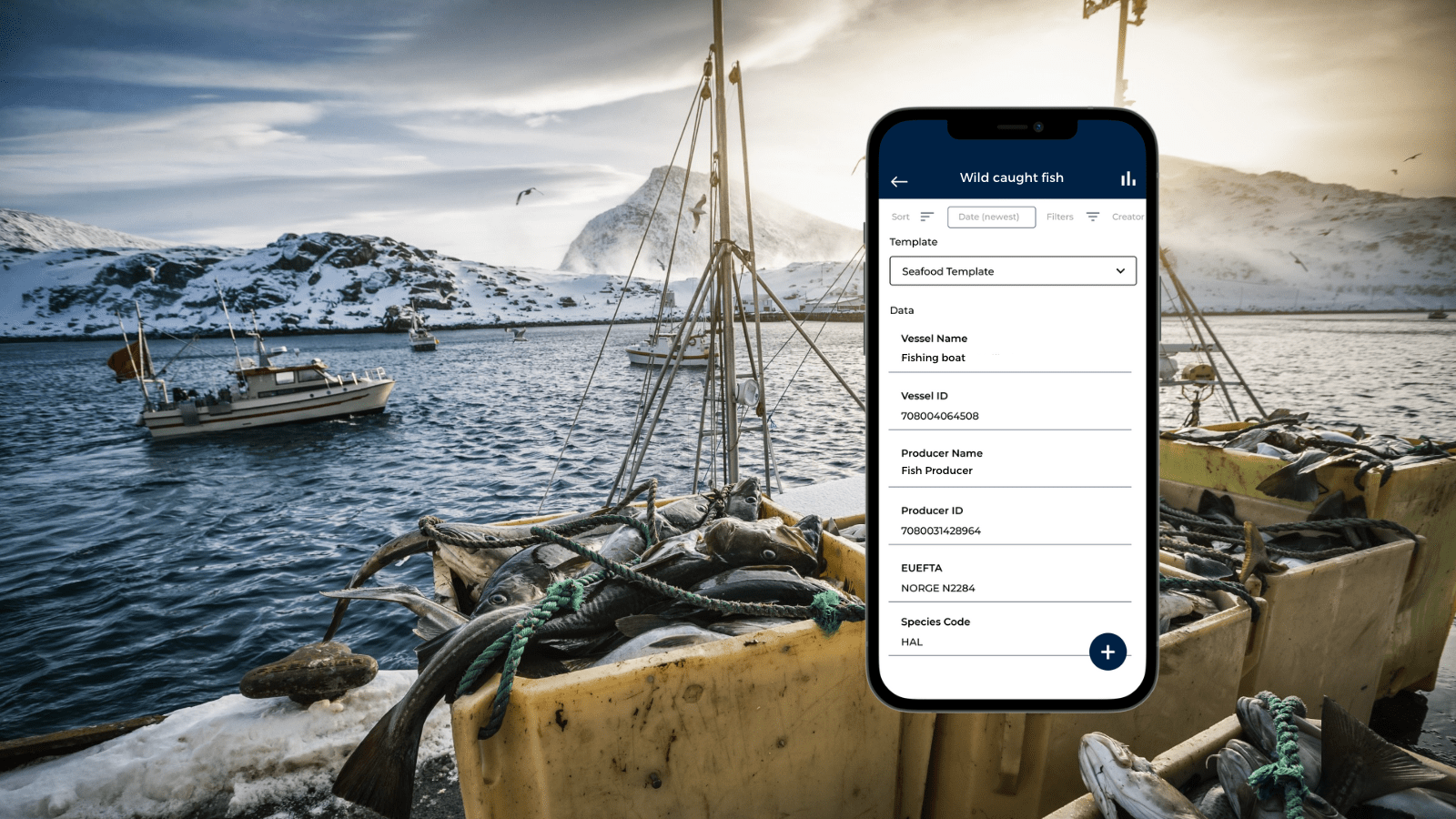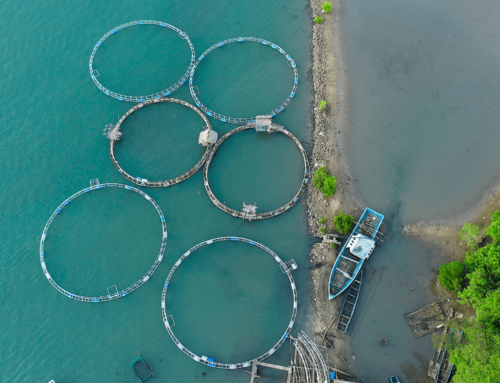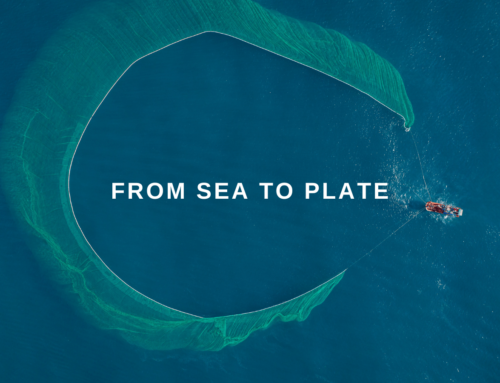The global seafood industry is facing growing challenges related to traceability, sustainability and supply chain management. Consumers are increasingly demanding transparency and accountability, while regulators are tightening regulations to combat illegal fishing and ensure the integrity of seafood supply chains. To meet these challenges, innovative solutions such as SeafoodChain, in conjunction with industry standards like the Global Dialogue on Seafood Traceability (GDST), are playing a pivotal role. By leveraging standardized traceability frameworks, SeafoodChain is revolutionizing the seafood industry, ensuring transparency, enhancing sustainability and promoting consumer confidence.
This article explores how SeafoodChain, implementing the GDST standards, benefits the seafood industry by enabling comprehensive traceability and fostering industry-wide cooperation.

Enhanced Traceability for Responsible Sourcing
Traceability is a fundamental aspect of responsible seafood supply chains. SeafoodChain, powered by UNISOT, provides standardized tools and technologies that enable stakeholders to track and verify the origin, movement and handling of seafood products. By adhering to industry standards like GDST, SeafoodChain ensures that each step of the process, from harvest to distribution, is accurately recorded and verifiable. This enables seafood companies to demonstrate responsible sourcing practices, minimize the risk of illegal, unreported and unregulated (IUU) fishing, and promote the sustainability of global seafood resources. Consumers can make informed choices, knowing that the seafood they purchase has been sourced responsibly and in compliance with industry standards.
Standardized Data Exchange and Collaboration
SeafoodChain’s implementation of the GDST standards facilitates seamless data exchange and collaboration among stakeholders in the seafood industry. GDST establishes common data-sharing protocols, ensuring compatibility and interoperability across various traceability systems. This collaboration fosters greater transparency and cooperation among seafood producers, processors, distributors, retailers and regulatory bodies. The standardized approach allows for streamlined communication, data accuracy and efficient collaboration, leading to more effective seafood supply chain management and improved decision-making processes.
Streamlined Compliance and Regulations
Adhering to industry standards such as GDST helps seafood companies meet regulatory requirements and comply with evolving sustainability and traceability regulations. SeafoodChain ensures that seafood companies have access to the necessary tools and frameworks to meet compliance obligations effectively. By streamlining compliance processes, SeafoodChain reduces administrative burdens, enhances efficiency and provides seafood companies with the means to consistently demonstrate adherence to responsible sourcing practices. Through digital documentation, such as catch certificates, vessel monitoring data and digital product passports (DPP), the seafood industry can achieve end-to-end traceability, ensuring that seafood products are sourced responsibly and comply with regulatory requirements.
Streamlining Supply Chain Operations for Enhanced Efficiency
The seafood supply chain involves numerous stakeholders, including fishermen, processors, distributors and retailers. SeafoodChain streamlines supply chain operations by digitizing and automating data capture, recording and sharing processes. By reducing paperwork, eliminating manual errors and enabling real-time information exchange, the SeafoodChain platform enhance supply chain efficiency. Stakeholders can access accurate and up-to-date data on product availability, quality and compliance, enabling them to make informed decisions, respond swiftly to market demands and optimize inventory management.
Facilitating Industry-Wide Collaboration
SeafoodChain’s utilization of industry standards like GDST facilitates industry-wide collaboration and information sharing. By adopting common protocols and frameworks, seafood stakeholders can work together to address shared challenges such as IUU fishing, supply chain vulnerabilities and sustainability concerns. This collaboration strengthens the overall resilience of the seafood industry, fostering cooperation among participants and encouraging collective efforts to implement sustainable practices.
The importance of ethical sourcing
Consumers today are increasingly concerned about the sustainability and ethical sourcing of seafood. SeafoodChain addresses this demand by providing transparent and verified information to consumers. Through the SeafoodChain platform, consumers can trace the journey of seafood products, learning about the catch location, fishing methods employed and sustainability certifications obtained. This transparency builds trust, empowers consumers to make informed choices aligned with their values, and supports the seafood industry’s commitment to responsible sourcing and fair trade practices.
Driving Sustainable Practices and Regulatory Compliance
SeafoodChain plays a vital role in promoting sustainability within the seafood industry. The platform facilitates compliance with regulations, such as the EU regulations for Supply Chain Due Diligence and Digital Product passports. By ensuring accurate and auditable data, seafood companies can demonstrate their commitment to sustainable fishing practices, environmental conservation and responsible supply chain management. SeafoodChain enables seafood producers to achieve and maintain certifications, such as the Marine Stewardship Council (MSC) or Aquaculture Stewardship Council (ASC), by providing the necessary data for assessment and compliance.
Big Data analytics and Federate Learning
Big Data analytics capabilities offered by SeafoodChain unlock valuable insights for seafood industry stakeholders. By leveraging advanced technologies like the Public Blockchain, IPv6 and Federated Learning, the SeafoodChain platform can analyze large volumes of data, while preserving data privacy of the supply chain actors to identify global trends, patterns and potential risks in the seafood supply chain. The insights gained enable stakeholders to make informed decisions, optimize production processes, reduce waste and enhance resource management. Data-driven approaches empower the seafood industry to adapt to changing market demands, improve operational efficiency and drive sustainability initiatives.




Leave A Comment